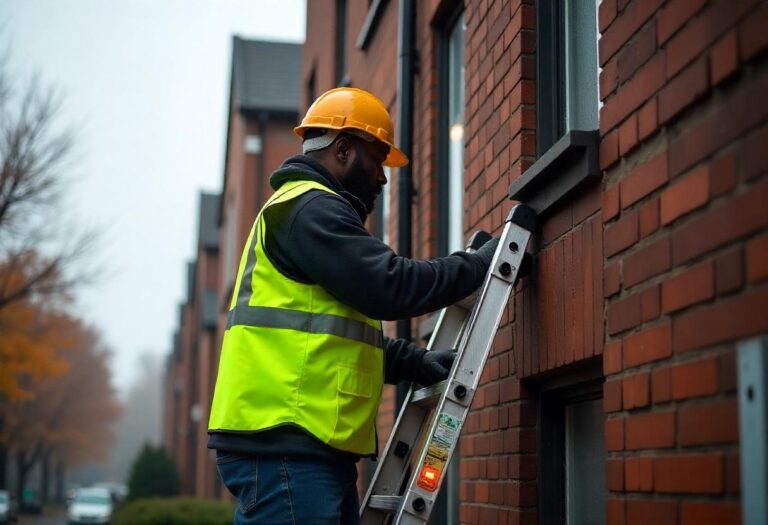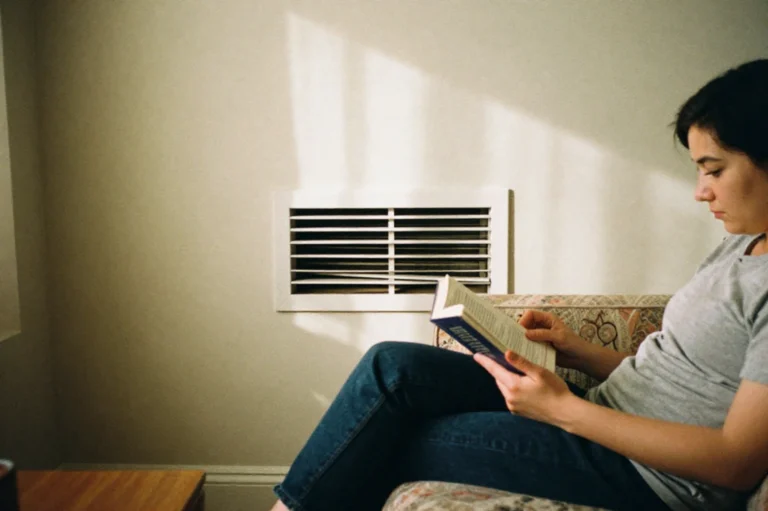Have you ever noticed that you feel a little off when you’re at home?
Maybe you’re always sneezing, waking up with a stuffy nose, or feeling extra tired for no clear reason.
And yet when you leave the house, you start to feel better.
Strange, right?
Well, the air inside your home might be part of the problem.
You see, most of us don’t think twice about our air ducts, at least as long as the HVACs are working.
Over time, these ducts can collect dust, mold, pet hair, pollen, and even bacteria, which gets blown right back into the air you breathe.
But can dirty air ducts make you sick?
The Environmental Protection Agency and most other health experts say they can.
This is exactly what I am going to break down in this article. Here, you’ll learn:
- What happens when air ducts get dirty
- How they can affect your health
- Stories from people who’ve experienced it
- Simple signs to look out for
- And how to keep your home’s air clean and healthy
So, let’s get started.
Key takeaways
- Dirty air ducts can collect dust, mold, pet dander, and bacteria over time
- These contaminants can cause breathing problems, allergies, headaches, fatigue, and more
- If you feel sick only when you’re at home, your air ducts might be the reason
- Visible mold, pest activity, and dust blowing from vents are major red flags
- You don’t need to clean ducts regularly but only when there’s a real issue
- People with asthma, allergies, or weak immunity are more affected by dirty ducts
- Bad indoor air can lead to Sick Building Syndrome, especially in older homes
- Always verify the duct cleaning service and avoid scare tactics and fake discounts
What happens when your air ducts get dirty?
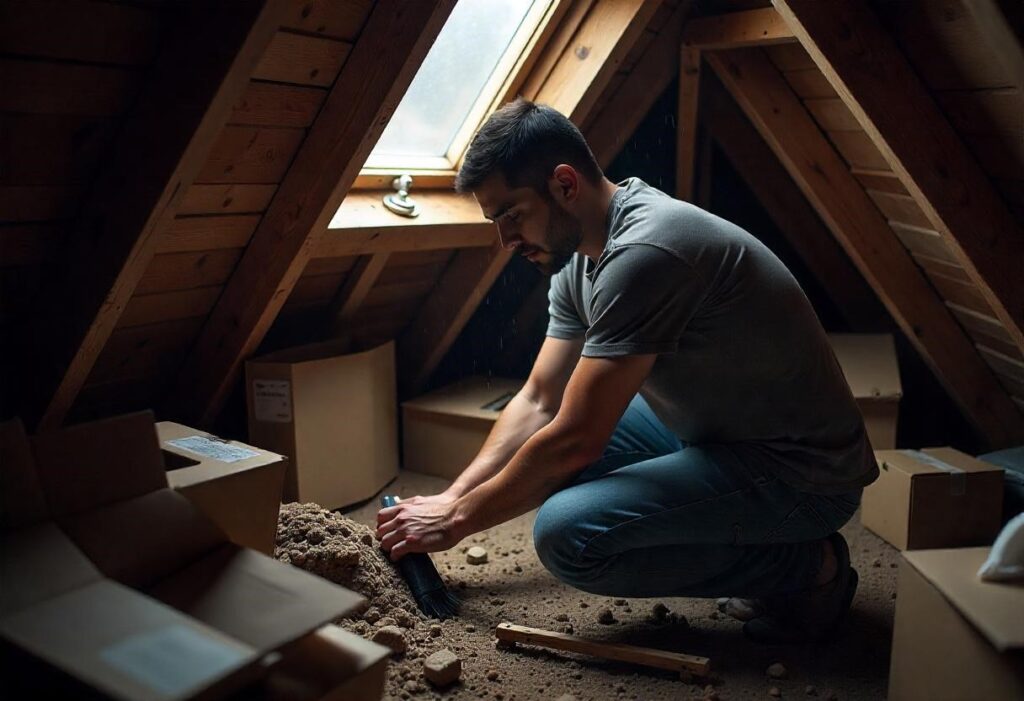
Your home’s air ducts are part of the HVAC system that keeps air flowing, regulates indoor temperature, and maintains comfortable ambient temperature year-round.
But just like any electrical or mechanical equipment in your home, these ducts can get dirty over time.
How?
Well, think about all the stuff floating around your home like dust, pet hair, pollen, tiny bits of dirt, even dead skin cells. All of that gets pulled into your HVAC system and can settle inside the ductwork.
In fact, if you haven’t a professional air duct cleaning in a while, here’s what might be building up inside:
- Dust and dirt from daily life
- Pet dander from your furry friends
- Mold and mildew (especially in damp or humid areas)
- Pollen that sneaks in from outside
- Insects or rodent droppings (yikes, but it happens!)
- Old construction debris if your home was recently remodeled
Now, every time your heat or AC kicks on, it can blow some of that stuff right back into the air you breathe.
You may not always see it, but you could be inhaling particles that irritate your lungs, trigger allergies, or even make you feel sick.
And the worst part?
Most people have no idea it’s happening.
In short: Here’s what builds up in dirty ducts
| Debris Type | Where It Comes From |
| Dust and dirt | Everyday life inside the home |
| Pet hair & dander | Dogs, cats, etc. |
| Mold & mildew | Humidity, leaks, or moisture |
| Pollen | Air from windows, doors, shoes |
| Rodent/insect droppings | Pest problems in ducts |
| Construction dust | From remodeling or repairs |
Schedule Your Free Estimate Today
Contact us to improve your indoor air
quality with our expert cleaning services in NJ.
Can dirty air ducts make you sick?
The short answer is, it depends on how dirty your ducts are.
As per the Environmental Protection Agency or EP, there’s no solid proof that simply having dust in your air ducts is making you sick.
However, the EPA does say there are a few clear cases when a dirty duct can be dangerous, including when:
- There’s visible mold inside the ducts
- Pests (like mice or insects) have gotten into the system
- Dust or debris is actually blowing out of the ducts into your rooms
In these situations, the air coming through your ducts isn’t just dusty, it could be carrying stuff that’s harmful to breathe in.
In fact, HVAC professionals and air quality experts agree. They say air duct cleaning shouldn’t be done just because you have one of those red flag issues above.
After all, clean ducts can make a real difference in how your home feels and how you feel inside it.
Simply put, if your air ducts look fine and you’re not having any health symptoms, you probably don’t need to clean them. But if your home has a musty smell, you’re getting sick more often, or you see mold, it’s time to get them cleaned.
How can dirty air ducts make you sick?
Now that we’ve talked about what collects in your air ducts and when it’s time to worry, let’s see how can dirty vents make you sick.
You see, all that hidden dust, mold, and debris isn’t just gross, it can seriously affect your body.
Here are the health problems they can cause:
| Symptom | Why It Happens |
| Breathing issues | Dust and mold irritate your lungs |
| Sneezing & itchy eyes | Allergens get blown into the air |
| Frequent colds/infections | Bacteria and mold weaken your immunity |
| Headaches or brain fog | Poor air = less oxygen to your brain |
| Allergy flare-ups | Dander, dust, and pollen spread through vents |
1. Breathing problems
If your air ducts are full of dust, mold, or pet hair, your lungs take a toll.
How?
Breathing in such air day after day can make your chest feel tight, leave you coughing or wheezing, and even make it hard to catch your breath.
Even worse, if you have asthma, it might trigger flare-ups more often.
Here’s one major clue you should pay attention to: Your breathing feels better when you’re out of the house, but worse at home.
This could be your ducts affecting your lungs.
2. Allergy-like reactions
Do you sneeze a lot at home but feel fine everywhere else?
Well, dirty ducts could be the culprit in this case too.
That’s because allergens like pollen, dust mites, and pet dander build up in the ducts over time. And when you turn the heating or cooling on, these irritants get blown through your house.
This can leave you with itchy eyes, a runny nose, sneezing fits, or even random skin rashes.
What’s worse?
Even if you’ve never had allergies before, dirty ducts can still trigger these reactions.
3. More frequent colds or infections
Does it feel like you’re always getting sick?
More likely than not your air ducts are part of the problem.
How?
Mold spores, bacteria, and viruses can build up in your ductwork and get spread throughout your home. And this means your immune system is constantly under attack.
Now, as your immunity weakens over time, you might catch colds more often and they’ll take forever to go away.
In fact, some people even ended up with bronchitis or sinus infections more easily. They say they felt like their house was making them sick until they had their ducts cleaned.
4. Headaches, fatigue, and brain fog
Poor air quality doesn’t just affect your body, it messes with your mind, too.
So, when your ducts are pushing out dirty air, it can reduce the amount of clean oxygen you’re breathing. This can leave you feeling sluggish, dizzy, or like your brain’s in a fog.
Some symptoms include constant low-grade headaches that just won’t quit, or feeling off when you’re home.
After all, your brain needs fresh air to function at its best. And if it’s not getting it, you’ll definitely feel it in your energy, focus, and mood.
5. Worsening of existing conditions
If you or someone in your home already struggles with a health condition, like asthma, COPD, or severe allergies, dirty air ducts can make things way worse. So much so that you might find yourself using your inhaler more, needing extra allergy meds, or having more flare-ups than usual.
That’s because poor indoor air quality puts extra stress on your body. And this is especially tough for kids, seniors, or anyone with a weaker immune system.
Bonus: Here’s a Reddit user’s experience with dirty ducts
Since we’ve moved here, my significant other has been experiencing increased allergy/sinus symptoms, from fatigue/headaches, to a sore throat.
— Reddit user on r/hvacadvice
How to tell if your air ducts are making you sick?
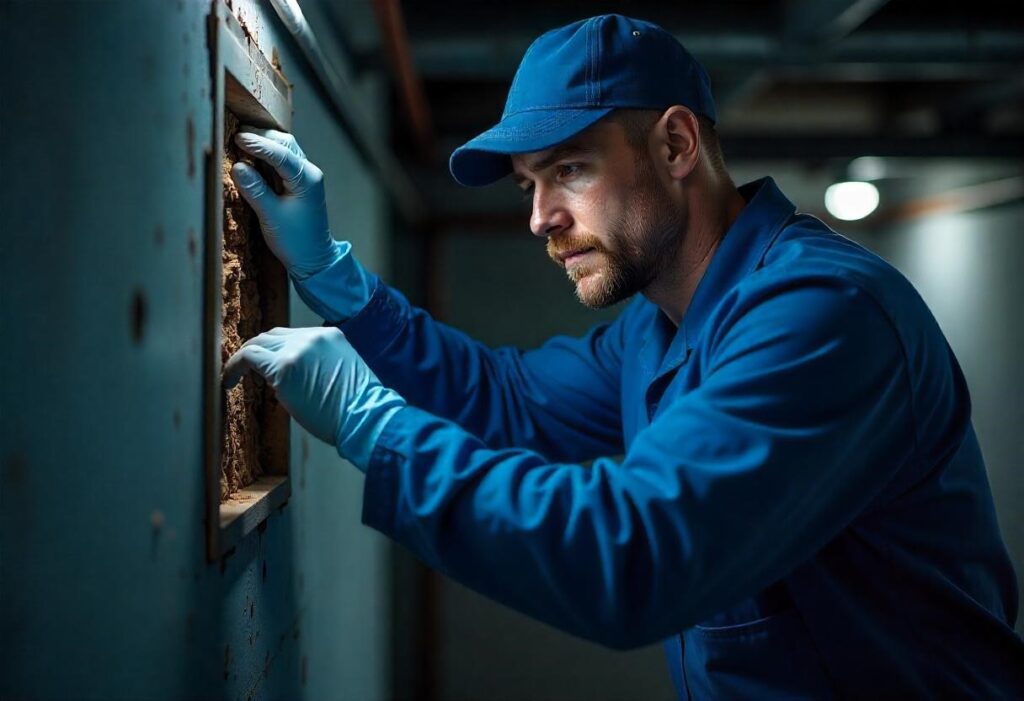
So far, you know that dirty air ducts can indeed make you sick.
But it’s important you know how your air ducts really make you sick. This will help you put a finger on those annoying sniffles, headaches, or weird smells in your home.
Overall, here are some clear signs that your ducts might be making you sick:
| Sign | What It Means |
| You feel sick only at home | Indoor air quality is poor |
| Musty smell when air turns on | Mold or bacteria in vents |
| Dust everywhere despite cleaning | Ducts are circulating particles |
| Recurring sore throat or sinus issues | Possibly mold or bacteria exposure |
| Visible dust/mold around vents | Time to clean the system |
| You had pests or leaks in the past | High chance of contaminated ducts |
1. You feel worse at home and better when you leave
This is probably the biggest clue.
If you constantly feel congested, tired, or foggy only when you’re at home, your indoor air might be the culprit.
And if you go to work or leave town and feel fine, that’s a big red flag about your air ducts, something you shouldn’t ignore.
2. There’s a musty or dusty smell when the air turns on
If your home smells clean until heating or cooling kicks in, that could be mold or bacteria in your ducts.
A musty or mildew-like smell is often a sign of moisture and microbial buildup inside the system.
3. There’s dust everywhere despite regular cleaning
If you wipe down surfaces and they’re dusty again a day later, your ducts might be blowing particles into the air every time your system runs.
And this is also a sign that you’re exposed to dust, and, thus, sickness.
It is simple: More dust in the air = more to breathe in.
4. You’re getting unexplained sickness more often
I am talking about the following symptoms:
- Recurring colds
- Sinus infections
- Bronchitis
- Sore throats
- Headaches
These could all be connected to bacteria, allergens, or mold spores circulating through dirty ducts.
5. You see mold, dust, or black marks around your ducts
Take a flashlight and look at your vent grilles or inside the ducts if you can.
- Do you see black or green spots or any other sign of mold?
- Do your ducts have thick dust buildup around the edges?
- Is there any visible gunk blowing out when the air runs?
These are all strong indicators that your ducts are making you sick.
6. You’ve had pests or water leaks in the past
If you’ve ever dealt with:
- Rodents or insects in the home
- Flooding, roof leaks, or water damage
- High humidity in your basement or crawlspace
There are chances that your ducts might be infected and affecting your health even without you knowing it.
When to clean your air ducts (and when not to)?
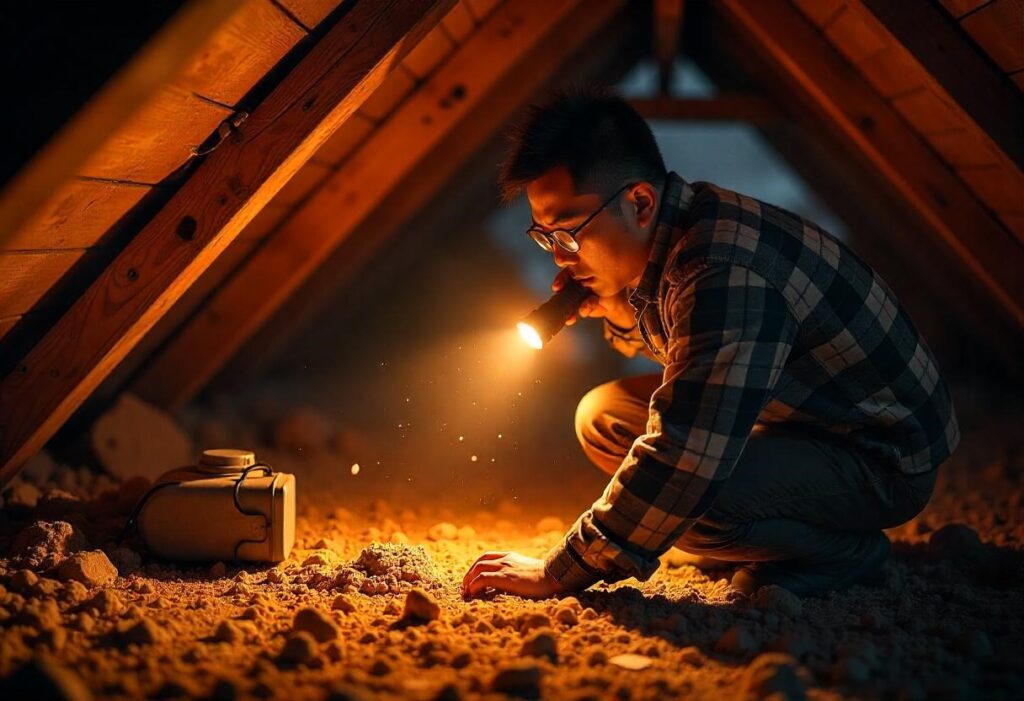
Let’s be real: Not everyone needs their air ducts cleaned. And not every company that says you do is telling the full truth.
So how do you know when you need duct cleaning and when it’s just a waste of money?
You should clean your air ducts if:
1. There’s visible mold in or around your ducts
If you can see black or greenish spots inside the ducts or on your grilles, this is likely mold. Mold spores can easily spread through your air and cause health issues.
2. You’ve had pests in your ducts
Mice, rats, insects, etc., love crawling into ductwork. And they leave behind droppings, hair, and sometimes even carcasses (gross, but true). All of that can make you sick.
3. You’ve just done a major renovation
Drywall dust, sawdust, and paint fumes can get sucked into your system during remodeling and stay there. So, post-renovation is a great time for duct cleaning.
4. Debris is blowing out of the ducts
If you see puffs of dust come out when the HVAC kicks on, that’s not normal. Your system is dirty and it’s throwing all that gunk into the air you breathe.
5. You or someone in your home has ongoing health issues
If someone in your family has asthma, allergies, or breathing trouble, and nothing seems to help, cleaning the ducts may bring relief. More so if your HVAC system hasn’t been cleaned in years.
You don’t need to clean if:
- Your ducts are clean and dust-free
- You’re not having any strange smells or health issues
- There’s no sign of mold, pests, or visible buildup
- You’ve recently changed filters and everything is working fine
In short:
| Clean If… | No Need If… |
| Visible mold is present | Vents look clean, no odor |
| You’ve had mice/insects | No history of pests |
| After major renovations | No recent construction |
| Dust blows out of vents | Filters are clean and working |
| Someone has breathing problems | Everyone feels fine, no signs |
Bonus: Red flag you should not ignore when hiring a cleaning professional
If a duct cleaning company says you have to clean every year, or uses scary language like “toxic buildup” without showing you proof, take a step back.
In these situations, I suggest you ask for photos or a visual inspection before agreeing to anything.
Can dirty air ducts cause Sick Building Syndrome?
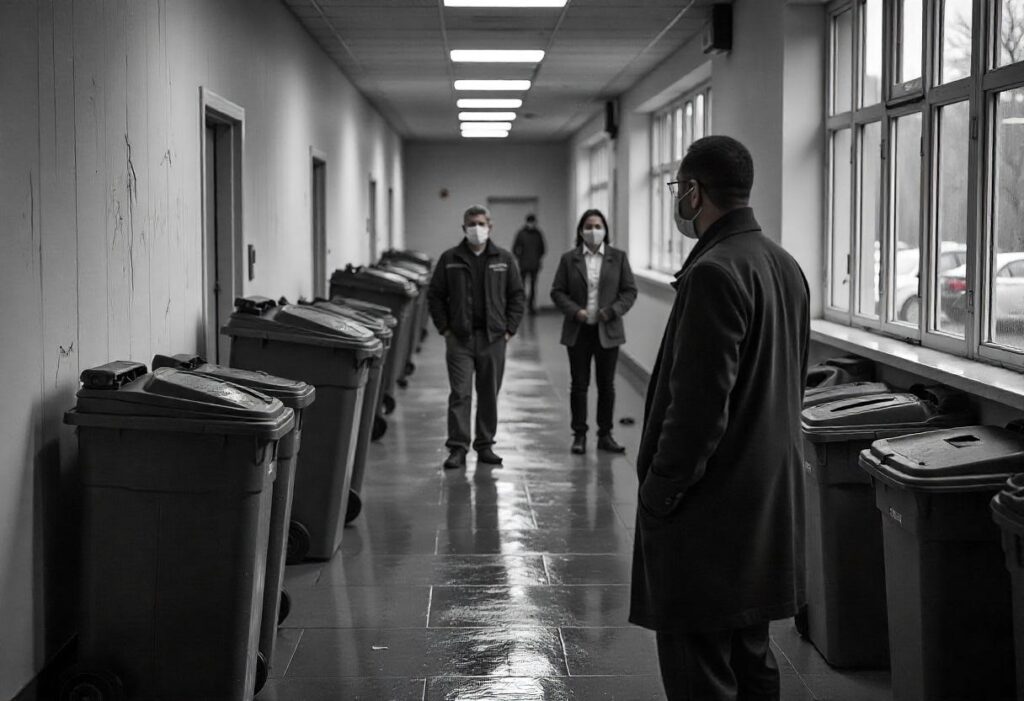
You’ve probably heard of buildings that just feel off. These are places where people always seem tired, sneezy, or unwell for no obvious reason.
This is what experts call Sick Building Syndrome or SBS.
And yes, dirty air ducts can definitely play a part.
Let’s understand how.
What Is Sick Building Syndrome?
Sick Building Syndrome is when people inside a building, usually an office or home, start to experience health problems that seem to go away once they leave.
Symptoms often include:
- Headaches
- Dizziness
- Fatigue
- Dry eyes or throat
- Sneezing and congestion
- Difficulty focusing
What causes it?
Poor indoor air quality.
That’s because things like mold, chemical fumes, dirty filters, or unclean ducts can all lower the air quality inside a building, even if it looks clean on the surface.
Where do air ducts enter the picture?
Air ducts are part of the problem because they:
- Circulate mold spores
- Blow dust and allergens through every room
- Trap old smoke, chemical fumes, or pet dander
- Create air that feels “stale” or low in oxygen
So if your ducts are full of gunk, and your air system just keeps cycling it around, it’s not hard to see how you could start to feel off.
In short: Here’s how dirty air ducts cause Sick Building Syndrome
| Symptom | Possible Cause |
| Headaches & fatigue | Low air quality, stale air |
| Sneezing, runny nose | Allergens in ducts |
| Brain fog | Lack of fresh air circulation |
| Throat or eye irritation | Mold, dust, or chemical residue |
Can dirty air ducts make you sick: Myths vs reality
We often hear people say things like, “just clean the ducts and your allergies will be gone.” Or maybe they say, “if you don’t see dust, it’s probably clean.”
Now, a lot of these claims are not true. But some of them might well be.
So, let’s bust some common air duct myths once and for all:
Cleaning ducts will fix your allergies: Myth!
Duct cleaning can help reduce allergens, but it’s not a cure-all. That’s because allergies can come from pets, fabrics, dust, and outdoor air too.
So, if you’re allergic to something that’s already everywhere in your home, duct cleaning is just one part of the puzzle.
If I don’t see dirt, it’s clean: Myth!
The real mess is often hidden deep inside your ductwork. Meaning just because you got vent cleaning and it looks fine doesn’t mean there isn’t dust, mold, or droppings further down the line.
Duct cleaning improves HVAC efficiency: Fact!
If your system is clogged with dust and gunk, cleaning can definitely improve airflow and reduce strain on your HVAC.
But if your ducts are already fairly clean, you probably won’t see a huge difference.
All duct cleaners are the same: Myth!
Some are professionals. Others are just guys with vacuums.
Look for NADCA-certified technicians and avoid companies that make wild health claims or offer suspiciously low prices.
Schedule Your Free Estimate Today
Contact us to improve your indoor air
quality with our expert cleaning services in NJ.
Conclusion
By now, you know that dirty air ducts can indeed make you sick. This is especially true if:
- You have allergies or asthma
- There’s mold, pests, or dust buildup in the vents
- You notice weird smells, more sneezing, or visible grime
But not every vent needs to be scrubbed.
If you take care of your HVAC system, replace filters, and keep the area around vents clean, you’re already ahead of the game.
Got more questions or want to get your home’s air ducts cleaned?
You can get in touch with us!
At Clean Air Technologies, we are seasoned indoor air quality professionals with decades of experience cleaning air ducts and restoring indoor air quality across New Jersey. And we’ve got all your air duct cleaning and maintenance requirements covered on a budget.
Frequently asked questions
Can I clean air vents myself?
Yes, to an extent.
You can vacuum around the vent covers, wipe them down, and replace filters.
But for deep duct cleaning, you’ll need professional-grade tools and training.
Are duct cleaning services worth the money?
Sometimes, yes.
If you’ve had pets, remodeling, mold, or allergy flare-ups, duct cleaning can help a lot.
Just avoid companies with scare tactics or crazy-low prices.
Do air purifiers help with dirty vents?
They don’t clean your ducts, but they do help with indoor air quality overall.
Use a purifier in high-traffic rooms or near pets for an extra layer of protection.
What’s the best filter for allergies?
HEPA filters are great for those who have allergies. They trap smaller particles like pollen and pet dander.
However, make sure your HVAC system can handle them (some older systems can’t).
Can dirty vents affect pets?
Yes!
Pets breathe the same air we do. And they’re often more sensitive to dust, mold, and poor ventilation.
If your pet seems to cough, wheeze, or shed more, the air could be a factor.


